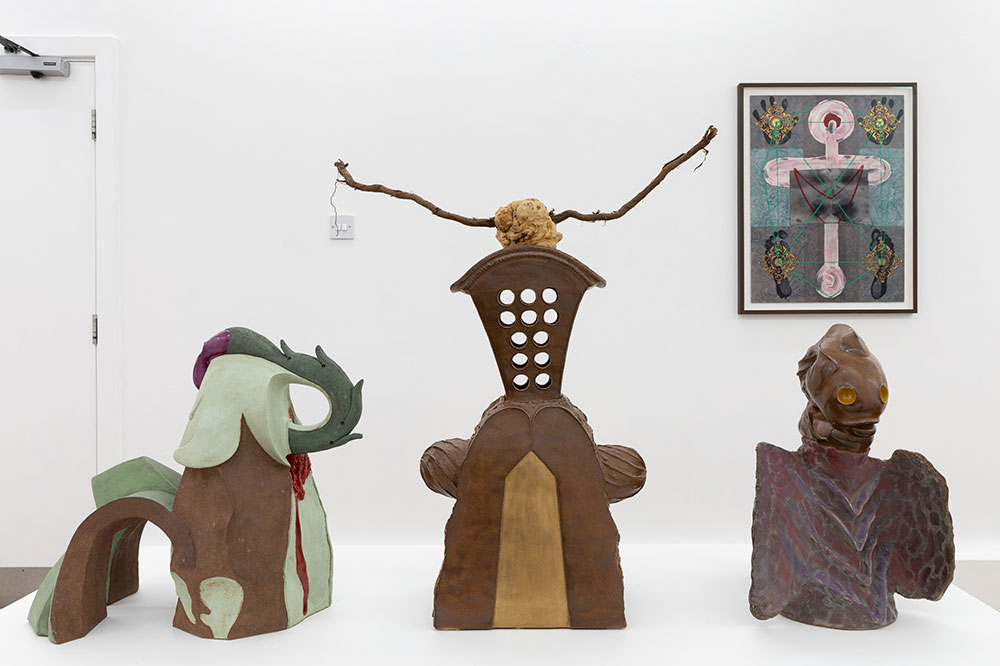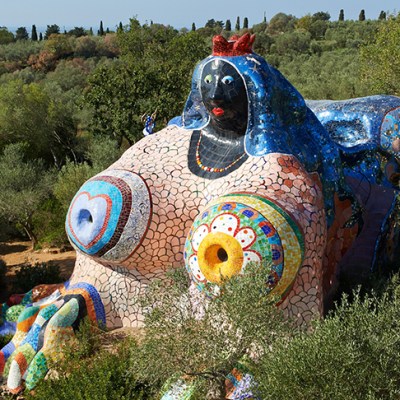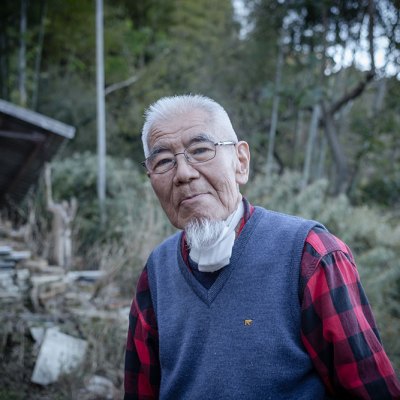Leering through the window of Arcadia Missa in London’s West End is a frightful beast. Its two hollow eyes stare out from a scaled head, varicosed with blue, but its stare is noticed second, after the passer-by has taken in the nine radiating fins that jut like the arms of a windmill from top of its head. These too are scaled: real scales, in fact, the skin of salmon stretched over a frame.
This may give a scare to shoppers exiting Selfridges, but it is more likely to draw you in than drive you away. Mr Salmon (2005), as it is called, is a work by the reclusive and unorthodox ceramicist Norwegian American Redd Ekks – that is, red X – the working name of Robert Rasmussen. It is a part of a small but fascinating presentation of the sculptor’s work, curated by Zully Adler, a welcome opportunity to discover an artist with roots in mid-century West Coast surrealism and an esoteric brew of other influences, from pre-Columbian artefacts psychedelia and Californian mysticism.
Mr Salmon (2005), Redd Ekks. Photo: Josef Konczak; courtesy the artist and Arcadia Missa, London
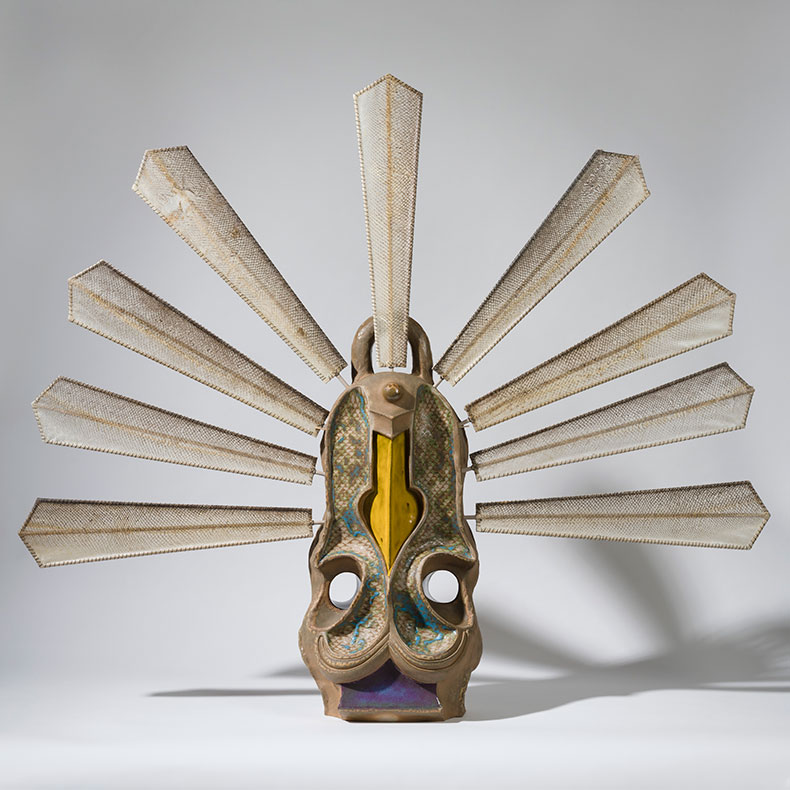
Nearly all of Redd Ekks’s works have more than one face, and all benefit from being seen in the round. On its reverse (or is it front?), Mr Salmon takes on the colourful complexion of a mandrill monkey, with flaring nostrils. It commands a certain respect: the echoes of ceremonial headdress or sacred idol are all too clear, although one might not like the rites suited to its empty gaze.
The zoological metaphors pile up around Redd Ekks’s works – and not just fauna but flora and fungus too. Attar II (2003), one of the more detailed pieces, is rendered in the lurid green of rain forest frogs, equipped with features suggestive of a red eye and beak. Interrupting the wholly organic impression are channels and ridges, creating the impression of an anatomical model for something with unknown anatomy.
Attar II (2003), Redd Ekks. Photo: Josef Konczak; courtesy the artist and Arcadia Missa, London
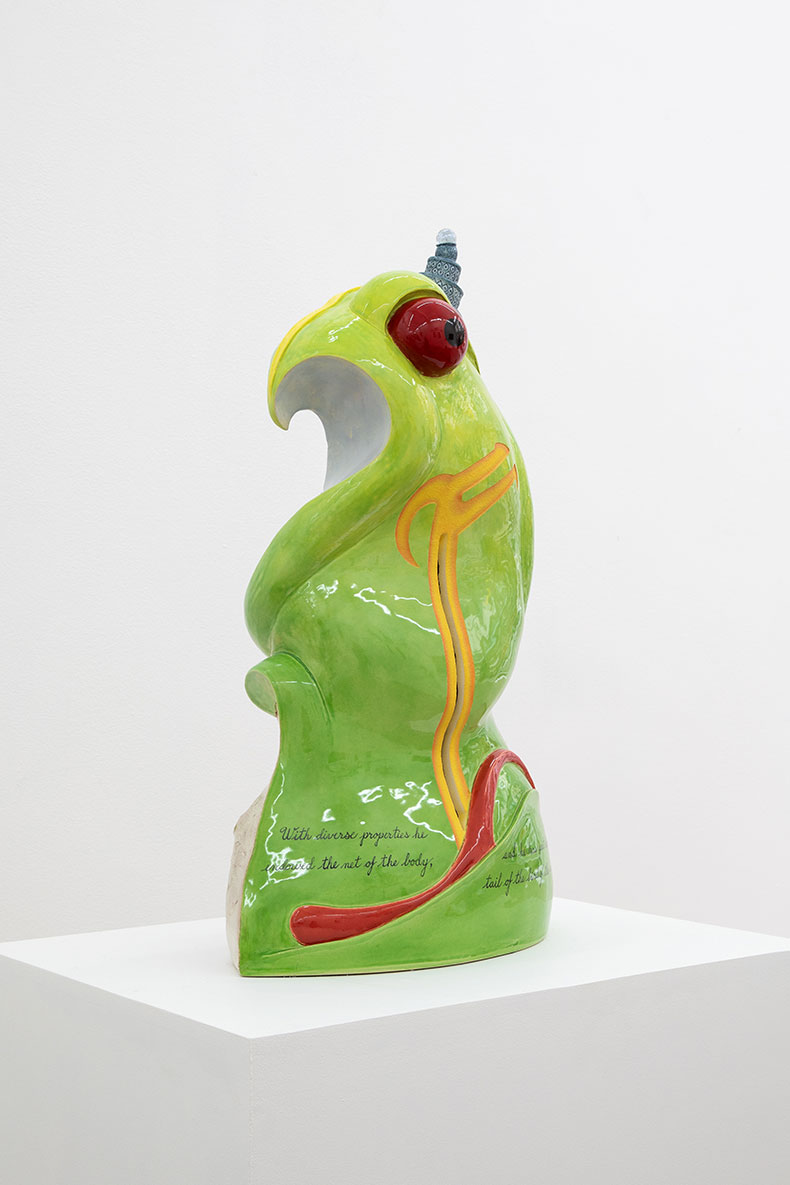
On top of Attar II is a little stepped cylinder like a tiered cake. Other pieces have similar architectural flourishes purposefully at odds with their biomorphic pulse, that appear like fascinators or lures. This is particularly true of 1i (2007), which has at its head an anamorphic puzzle of interlocking hexagons which, viewed from the correct angle, snaps from three dimensions into two. This play with the viewer is enticing, but with a faintly sinister edge of intent, like a being transfixed by a snake. Its torso is rough green, carved by a smooth pink gullet, typical of the contrasts of texture and plasticity that animate many pieces. Molen II has a scooped interior like seed chamber, with a withered resident; Spring (2009) centres on a green effusion that resembles a cobra hood.
1i (2007), Redd Ekks. Photo: Josef Konczak; courtesy the artist and Arcadia Missa, London
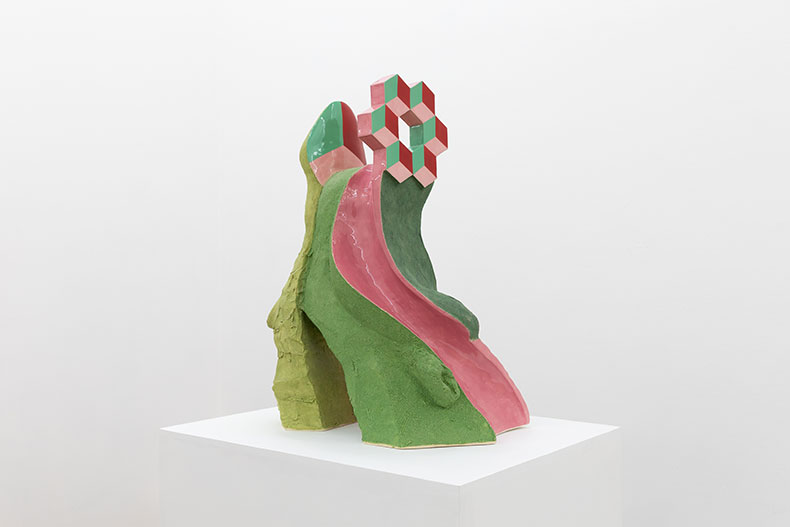
Coxcombs, lips, wattles, fungal crests – the biomorphic language heaps up but is kept on edge by Redd Ekks’s overall sense of control and moments of pure artifice: precise lozenges of colour and neat incisions, elements suggestive of handles and openings. Sometimes this results in apparent chaos, such as Suite Georgia (2013–14), which seems to have no beginning or end, and any effort to trace a consistent element runs into contradiction. Is it legged, seated or handled? Biological or sculptural? Is that an exit wound? It is – in a purely ornamental sense – repellent, but it doesn’t repel, it fascinates. Takes Two To Tango (2006), an oddly well-behaved piece with an inescapably vaginal opening on one side is topped with a large purple wedge reminiscent of a bicorne hat or an ergonomic bottle stopper, and brings to mind the ceramic totems designed by Ettore Sottsass for the Memphis group – a rare occasion when the work seem to reach out beyond its own arcane self-referential anatomies.
Suite Georgia (2013-14), Redd Ekks. Photo: Josef Konczak; courtesy the artist and Arcadia Missa, London
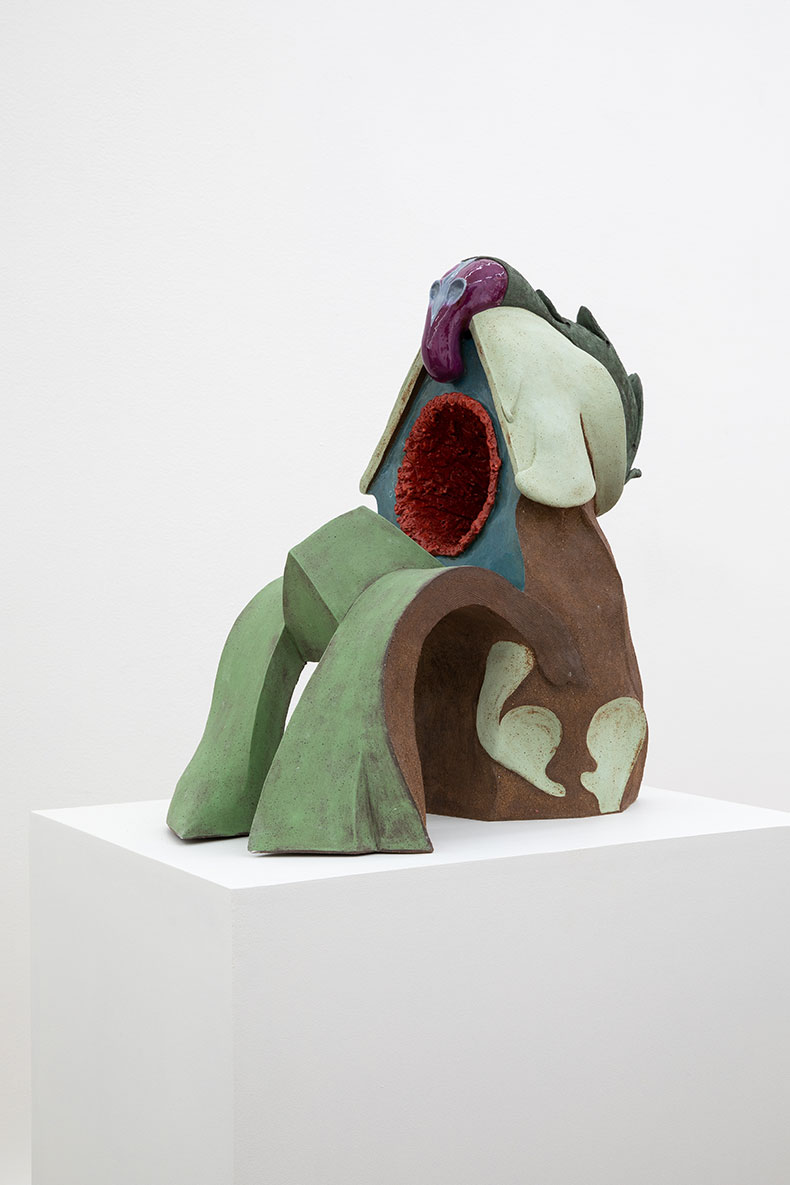
Beside the sculptures are some inscrutable paintings, and an intriguing architectural study for an installation combining a black ceremonial arch and a rough-hewn cairn topped with a Sauronesque red orb. But it’s the sculptures that dominate, using every iota of the three dimensional. At times it all feels a bit H.P. Lovecraft, and one fears reaching into the same difficult language of otherness: rugose, squamous. This is abetted by the ritual air that attends some pieces, such as Mr Salmon, or Priest (1991), a cowled figure bent in prayer by a dead tree. Mysticism hangs heavy in the air – the lack of incense is almost a surprise. For a small show, Redd Ekks delivers a feast for the imagination. Any unspeakable cults needing a blasphemous idol to substitute for their elder god should head to Arcadia Missa immediately – and anyone else who wants a taste of the genuinely esoteric and enigmatic.
‘Redd Ekks: X’ is at Arcadia Missa, London until 6 April 2023.
